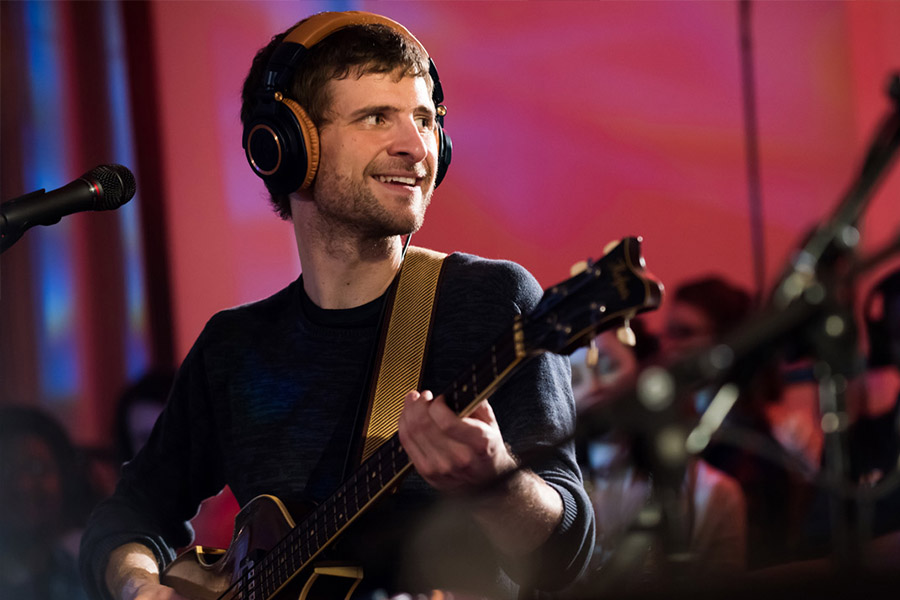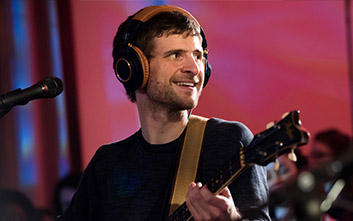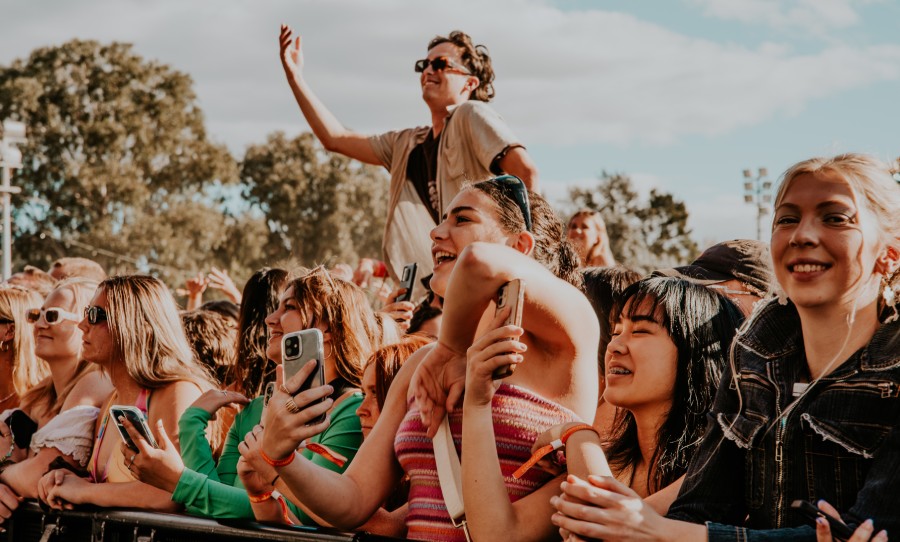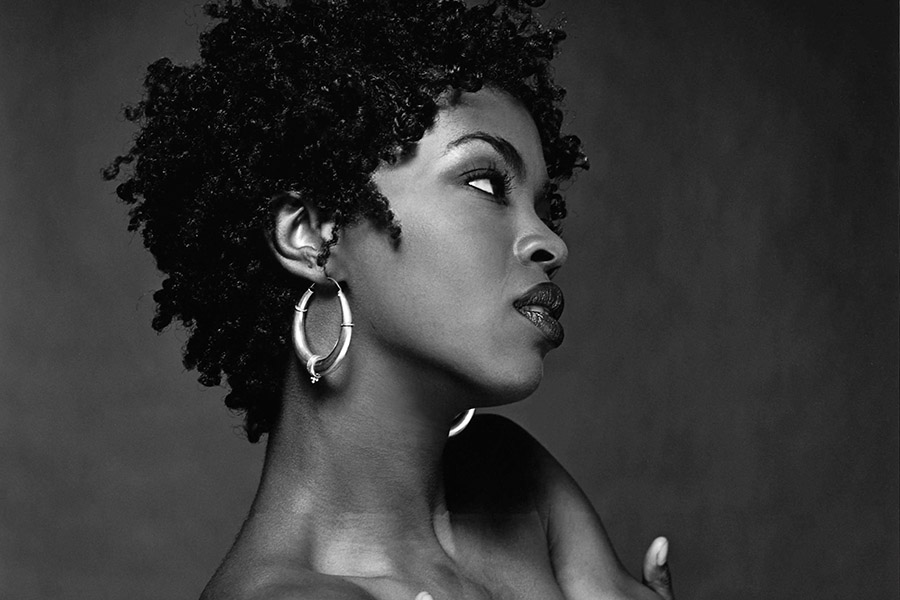Snarky Puppy are almost impossible to define, not to mention summarise in a short paragraph. With over 40 members, they’re far from your average act…and one the world took a long time to ready themselves for.
Under the guidance of composer and producer Michael League, Snarky Puppy’s accolades have been adding up. With a few Grammys under their belt and an Aussie tour looming in April, we caught up with League for a 5 minute chat.

How did Snarky Puppy turn a decade of financial sorrow into worldwide recognition? We chat with bandleader and composer Michael League.
HAPPY: First things first – congratulations on the Grammy! Following 2014’s win did you have any sense that Culcha Vulcha would reach the same recognition?
MICHAEL: We never expect recognition for our work; we existed in relative obscurity for about a decade and became accustomed to that. It’s special every time, but this one was particularly special because it’s the first time we’ve been recognised for doing “our thing,” performing original instrumental music without special guests.
It felt great when we were in the studio tracking, and when Nic and I finished mixing it, I could sit back, listen, and actually enjoy it. But at no point did I think, “this will win a Grammy.” If I ever start thinking that way, I want someone to punch me. That’s not why we make albums.
HAPPY: The Grammys copped some flak this year from the likes of St. Vincent and Frank Ocean. As someone who has won in wildly different categories, what do you think awards shows like the Grammys need to do to stay culturally relevant?
MICHAEL: To begin, the idea of giving out a trophy for art, to have a “winner” and “losers”, is strange to me. But award ceremonies like the Grammys have the ability to highlight works of artistic greatness and give the creators a boost in visibility and reputation, hopefully facilitating more works of greatness.
Unfortunately, the prime time awards seldom go to what the music community would almost unanimously embrace as works of high creative value and, instead, go to KISS FM favourites. And for that, I think that NARAS is missing an opportunity to change the course of popular music for the better. You see it in the afternoon ceremony in which the more obscure awards are presented, but very rarely in the big categories. Occasionally someone sneaks in there as a nominee or even a winner- a Radiohead, David Bowie, or D’Angelo – but they’re too few and far between.
Just imagine if every single nominee was not just an entertainer, but a world-class artist. Think about what that would do to mainstream music media, and consequently, audience taste on a large scale. The general public will listen to whatever their advertised. So, let’s advertise great music.
HAPPY: You’re more of an orchestra than a band at times, in terms of numbers at least. What’s the best part about having such a diverse range of musicians to record with?
MICHAEL: Our collective sound is a combination of an initial concept, the various personalities and musical tastes of the players, and the mentality of embracing everything that we experience in order to push our music forward. Everyone has their own voice, and their own story. We try to create a place where everyone can just focus on being themselves while serving the compositions.
HAPPY: On the other hand, organising such a huge cohort can be a nightmare. Any near disasters that have come with touring so many members?
MICHAEL: Financially, our group was a disaster for over a decade. I can say that in one swift sentence, but I could also write a novel about the thousands of moments in which I considered calling the whole thing off. Van and bus breakdowns, maxing out credit cards, people not getting along, you name it. That, fortunately, has changed. Being able to tour comfortably and survive with only music as a profession has made everyone more relaxed and happy. And the relatively recent level of increased visibility allows us to take musical risks and know that people will listen with open ears and minds.
HAPPY: You’re playing Bluesfest this year, any particular favourites you’re happy to see beside you on the lineup?
MICHAEL: There are so many. But the #1 for me would have to be Bonnie Raitt. I’ve been listening to her since I was in the cradle and have never seen her live.
HAPPY: How differently do you approach a midday festival set to a headlining set at a large concert hall?
MICHAEL: We always try to create the most ideal experience for both the audience and ourselves. You never know what a crowd will be receptive to until you start playing!
Catch Snarky Puppy live in Australia for a run of dates in April, including Byron Bay Bluesfest.
Ticket info, gig locations and anything else you’ll need to know can be found on their website.



